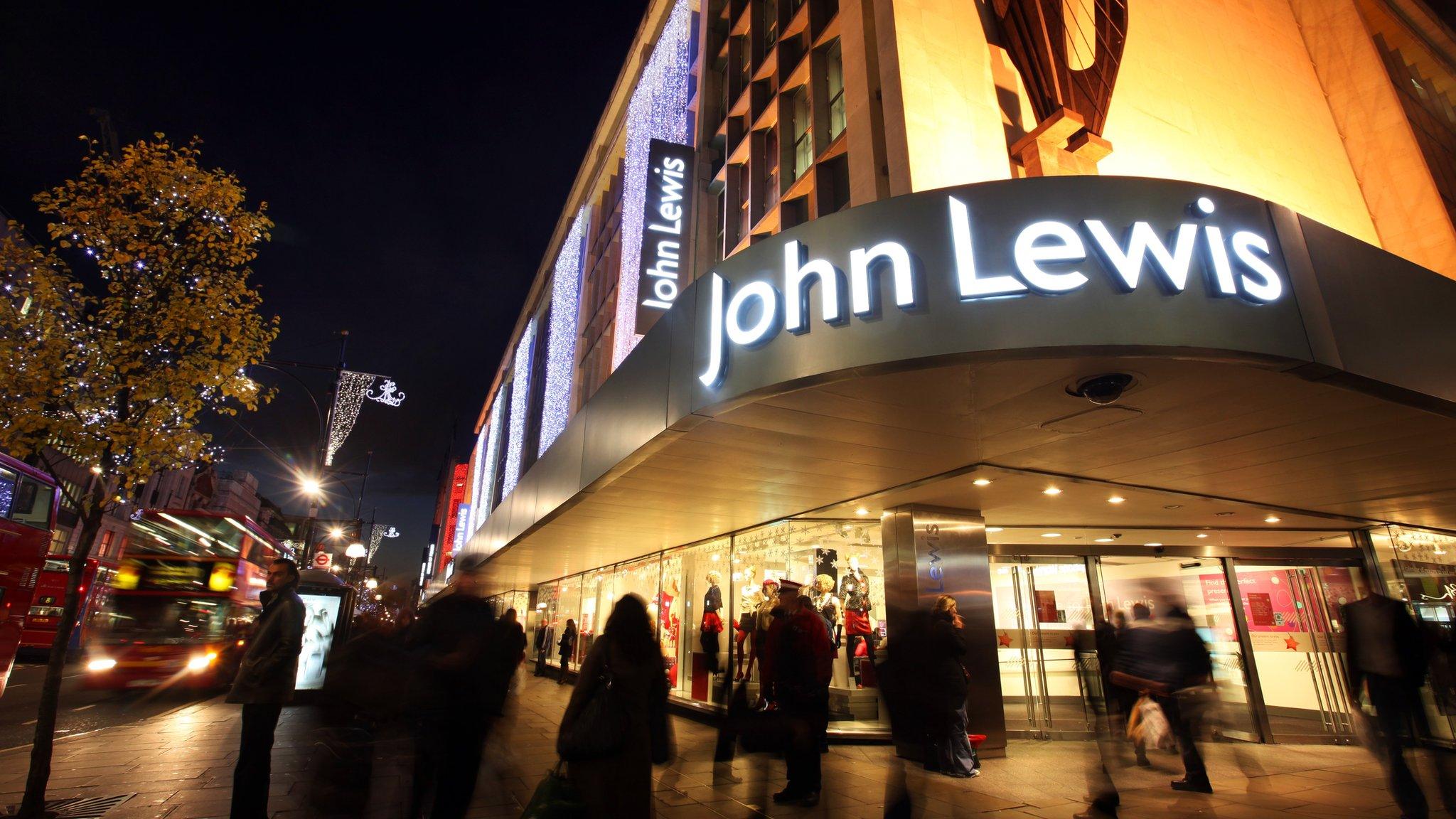John Lewis warns prices 'likely' to rise on 'Yes' vote
- Published
A Yes vote in Scotland would raise business risks, John Lewis chairman Sir Charlie Mayfield says
Prices in Scottish branches of John Lewis and Waitrose may be higher than in the rest of the UK if the country votes "Yes" to independence.
The chairman of the John Lewis said it was "most probable" that prices will rise, with costs passed on to customers.
Sir Charlie Mayfield said there were "economic consequences to a 'Yes'".
On Thursday, the partnership, which includes Waitrose, posted a 12% jump in pre-tax profits.
Sir Charlie said: "It does cost more money to trade in parts of Scotland, and therefore those higher costs in the event of a 'Yes' vote are more likely to passed on ...
"When we are talking about two separate countries it is most probable that retailers will start pricing differently."
In response to the comments, the Scottish finance secretary John Swinney said: "Charlie Mayfield is entitled to his opinion.
"I think the argument is one that is firmly contested by other retailers who do not take the view that has been expressed this morning by Charlie Mayfield."
'Challenging'
While overall profits at the partnership were up 12% at £129.8m, operating profits at Waitrose fell 9.4% due to new store openings.
Waitrose opened 15 more branches in the UK, 11 more than in the same period last year.
Sales at Waitrose rose 1.3% and 8.2% at John Lewis.
John Lewis' click and collect service increased in popularity, up 25.6%, and now accounting for 30% of all merchandise sold.
The partnership said outlook for food was "challenging" but other parts of the business were "more positive than has been the case for several years".
Asda too
Asda has also warned that a "Yes" vote could have an impact on their prices.
Andy Clarke, president and chief executive of Asda said: "If we were no longer to operate in one state with one market and - broadly - one set of rules, our business model would inevitably become more complex. We would have to reflect our cost to operate here.
"This is not an argument for or against independence, it is simply an honest recognition of the costs that change could bring."
- Published19 April 2014
